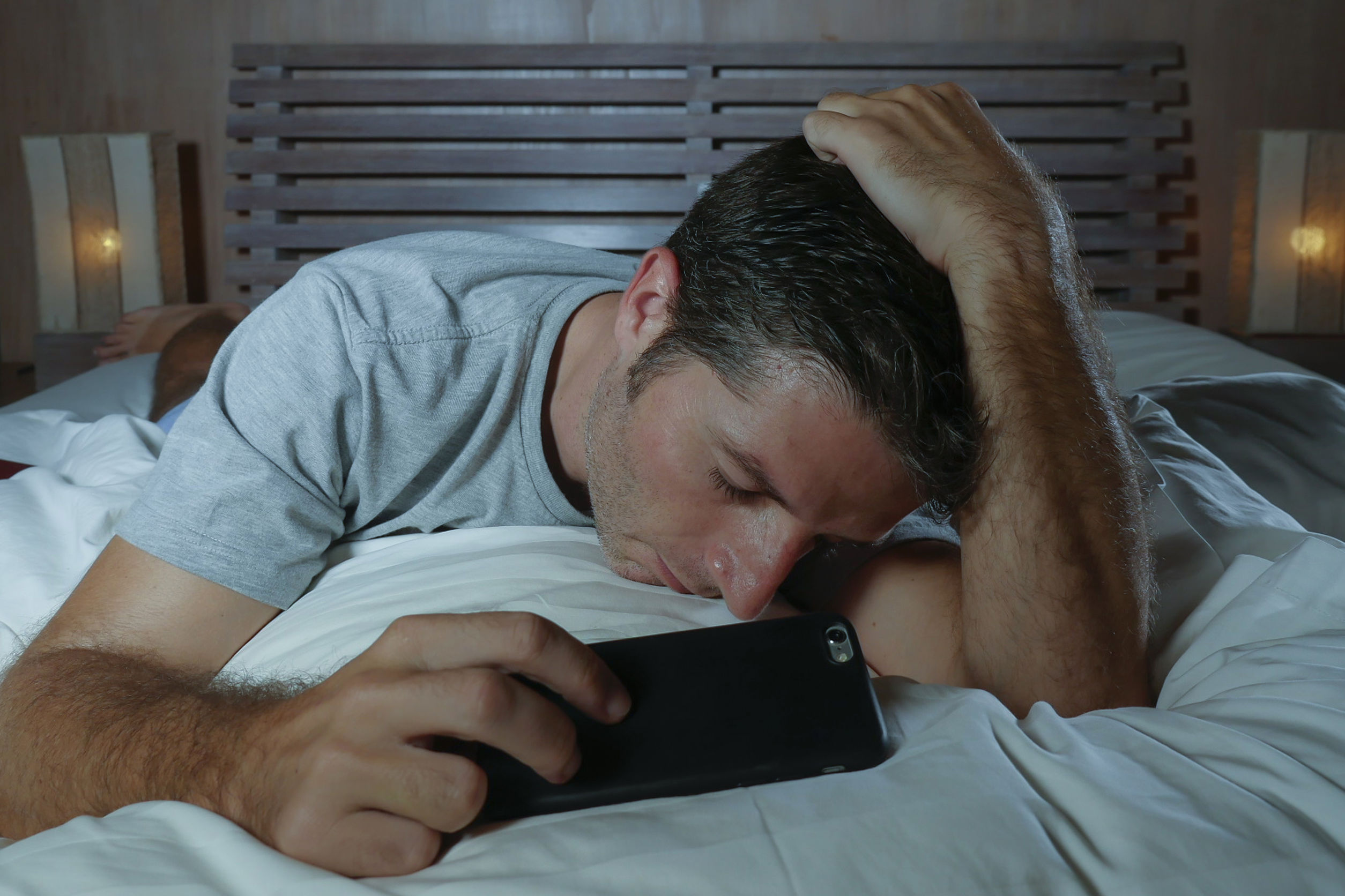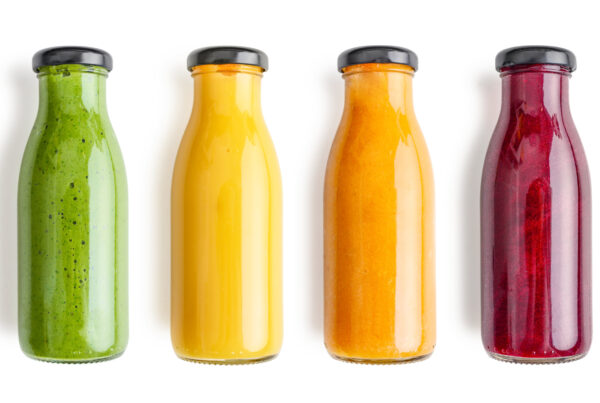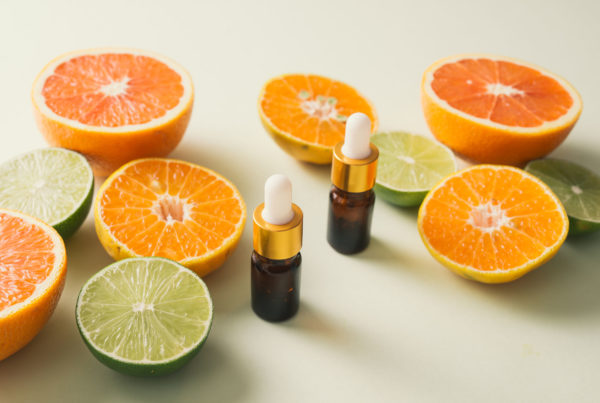”Michigan, did you know there are phone apps for sleep? Check out this week's article to learn how sleep apps might be able to help you improve your sleep.
Reading Time: 9 Minutes
MWi Hacks:
- Understand what metric you are trying to measure and an app best suited for your needs
- Find out more information on apps that have been researched by professionals
MWi Summary:
- There are many sleep-related apps available.
- Sleep apps may help with a variety of issues such as blocking noise, calm a racing mind, fixing bad sleep habits, and tracking your sleep.
- However, most experts believe much more research needs to be done before any definitive statements are made.
”Some may help by blocking out noise, helping you relax, or teaching good habits
For years, Elizabeth Shaw woke up in the middle of the night, her mind ablaze with worries or to-dos. Then her aunt, a fellow middle-of-the-night insomniac, recommended a cell-phone app called Relax & Rest Guided Meditations. Shaw paid $1.99 to download it, and quickly took to the calming voice reassuring her that all she needed to do was relax.
Now when she wakes too early, Shaw reaches for her phone (volume set low, to not disturb her spouse) and is soon back in dreamland. She recently lent her cell phone to her 12-year-old son, who was having difficulty unwinding. “He came down in the morning and said, ‘That was great. I fell asleep right away,’ ” she says.
With so many of us connected to our phones all day, it was inevitable that we would turn to our devices at night, too. And sleep apps are booming: Downloads of several of them increased 20 percent in the past year, according to the mobile insights and data platform App Annie. One app, Sleep as Android, has been downloaded more than 18 million times since 2010.
The appeal is understandable: Most (though not all) apps are simple to use and inexpensive. And Americans clearly need the help: 80 percent in a recent nationally representative Consumer Reports survey of 1,767 U.S. adults said they had trouble sleeping at least once a week.
But how useful are sleep apps, really?
To find out, we talked with experts about several popular types, including those that aim to aid sleep by blocking annoying noise, others that use guided imagery or hypnosis to help you relax, and those that track your sleep patterns.
Entertainment or Medical Device?
Seema Khosla, M.D., medical director of the North Dakota Center for Sleep in Fargo and the lead author of a 2018 position statement on sleep apps from the American Academy of Sleep Medicine, says that most of the research on the apps is preliminary at best. And she points out that the fine print on most apps say that they are marketed as “entertainment” or “lifestyle” apps, not medical devices, meaning that their effectiveness hasn’t been evaluated by the Food and Drug Administration.
Petr Nalevka, the founder of Urbandroid, which developed Sleep as Android, says the app’s “sleep score”—a measure of sleep duration, irregularity, time in deep sleep, and more—is modeled after the reputable Pittsburgh Sleep Score. He says his company hasn’t sought FDA approval in part because it lacks the resources but also because as a libertarian, he doesn’t “believe in institutional regulations.”
In addition to limited research and lack of government oversight, some experts worry that cell phones themselves can harm sleep, because people bring the devices to bed to check email and social media. So if you do use a sleep app, be sure to keep the phone face down so the light doesn’t bother you, and keep it in airplane mode so you won’t get calls or texts, says Brynn Dredla, M.D., a neurologist and sleep medicine specialist at the Mayo Clinic in Jacksonville, Fla.
Finally, as with any app, check the permissions in its settings to see if it collects any personal information that you are uncomfortable sharing or that isn’t needed for the app to function properly. For example, a white-noise or guided imagery app doesn’t need a list of your contacts, your photos, or your location. And be aware that as entertainment devices, these apps are not subject to the same privacy protections as you expect with healthcare providers. (Read more about how to protect your digital privacy.)
Here’s a guide to the different types of sleep apps available, and expert advice on how to get the most from each.
Apps That Block Noise
It makes sense that you’ll sleep better if you can block out annoying noise, like a neighbor’s barking dog or your teenager’s rowdy sleepover, Khosla says. Several apps try to do that, either with music or “white noise,” such as the sounds of a fan, ocean waves, or even a steadily moving train.
Examples of this type are Relaxing Music: Sleep Sounds, Relaxing Music to Sleep, and Relax Melodies, White Noise Generator, myNoise and the White Noise apps.
A 2016 Consumer Reports survey of people with sleep problems found that those who tried white-noise machines said the devices did help them sleep. Other research, including a 2015 analysis in the Cochrane Database of Systematic Reviews, has shown that soothing music may have that same effect. (Though the benefit could also come from the ability of the music to help you relax, not just by blocking out noise; see below.)
Tips: No studies have yet examined whether soothing music or white noise specifically delivered via smartphone app works. But there’s little downside to trying one to see if it helps, Dredla says.
Apps That Calm a Racing Mind
If music or white noise isn’t enough to quell your rambling or anxious mind at bedtime, apps designed for mental relaxation might help.
Some use guided imagery or other form of meditation, typically soothing voices describing peaceful scenes, sometimes with accompanying music. Examples include Calm, Pzizz, Headspace, and the Relax & Rest Guided Meditations App, which Shaw swears by.
Others use hypnosis, which combines imagery with targeted suggestions, such as “you can relax completely” and “your mind is quiet and still.” Examples include Sleep Well and Hypnosis for Sleep and Dreaming.
Tips: Some research, such as a 2002 Behavior Research Therapy report, does suggest that guided imagery can relax the mind and assist with sleep. But it’s unclear if guided imagery apps also work, and some may overpromise. The website for Pzizz, for example, states that its method, where guided imagery or other narration is combined with music and sound effects, is “clinically proven to help you sleep.” But the study it bases this on involved just 29 people trying to nap during the day (not sleep at night) for just two weeks, and wasn’t published in a major medical journal.
There’s also some evidence for hypnosis—a 2018 review in the Journal of Clinical Sleep Medicine found the technique improved sleep in more than half of people studied. But little quality research proves this method works when delivered via app. If you decide to give sleep hypnosis apps a try, don’t worry that it will have you quacking like a duck in your sleep. The idea that you surrender control of your mind while in a trance is false, says the American Society of Clinical Hypnosis.
Apps That Fix Bad Sleep Habits
One of the most effective treatments for recurring sleep problems is cognitive behavioral therapy for insomnia (CBT-I), a form of counseling that helps you identify and replace the thoughts and behaviors that contribute to your sleep problem. The American Academy of Sleep Medicine now recommends CBT-I over sleep drugs as the treatment of first resort for chronic insomnia.
While that approach typically involves several in-person sessions with a trained professional, online programs and apps may also work. For example, more than half of chronic insomniacs who used one such program, SHUTi, saw improvements after nine weeks and were sleeping normally a year later, according to a 2018 study published in JAMA Psychiatry.
Other similar programs recommended by Afifa Shamim-Uzzaman, M.D., a sleep medicine physician at the University of Michigan’s Sleep Disorders Center, include CBT-i Coach, which was developed by psychologists at the Department Veterans Affairs, and Sleepio.
Tips: These programs may work best after several sessions with a professional. And some are available only as part of a clinical trial (SHUTi) or from your insurance company (Sleepio).
Experts also point out that all apps could add value by providing information on good sleep habits and how to adopt them. “A good app doesn’t just say you have a problem, it offers tips on what might be in your way, such as alcohol, evening exercise, or stress,” says Diana Grigsby-Toussaint, Ph.D., an associate professor of kinesiology at the University of Illinois.
But when she reviewed 35 sleep apps for a 2017 review in Preventive Medicine Reports, she found that few included that information. “The apps were disappointing, because this information is so important for improving sleep,” Grigsby-Toussaint says. So if you need help with sleep habits, look for apps that include this information or find other resources, including advice from your doctor.
Apps That Track Your Sleep
Several apps aim to chart your sleep patterns—such as how long it takes you to fall asleep, how long you spend in deeper stages of sleep, and how much you move around while in bed, which could indicate restless leg syndrome—using your phone’s built-in sensors. Some of these sleep-tracking apps also have a “smart alarm” feature that supposed to wake you when the movement sensor detects you’re in a lighter stage. Examples include Runtastic Sleep Better and Sleep as Android. Others document whether and how much you snore (SnoreLab, Do I Snore Or Grind).
Tips: Experts say apps that track your sleep may be worth trying to make you more aware of your sleep and prompt you to take steps to improve it.
But Khosla cautions that they shouldn’t be used to diagnose sleep disorders. Researchers who have compared these trackers to the gold standard for monitoring used by physicians, known as polysomnography (PSG), find they fall far short. That’s why the American Academy of Sleep Medicine released a position statement last May urging that all sleep apps undergo FDA approval.“If they want to be used as a diagnostic tool, they need to compare well to PSG. It’s a high bar, but patients deserve that,” says Khosla, the lead author of the statement.
Features in some sleep-tracking apps that alert you to whether and how much you snore may have some benefits. These snore-detecting devices may even be useful as an initial screening test for obstructive sleep apnea (OSA), a condition where throat muscles intermittently relax and block the airway, which increases the risk of high blood pressure and other health problems. A review of sleep apps in April 2018’s Sleep and Breathing found “a promising role of apps in detection of snoring and sleep-related breathing disorders.”
But because research shows that sleep tracking devices aren’t always accurate—for example, snoring detection can be thrown off by a car driving by, and those detecting stages of sleep might misinterpret restless awake time as light sleep—it’s important to discuss any app’s finding with your doctor, says Shamim-Uzzaman of the University of Michigan.
MWi would like to thank Meryl Davids Landau for posting this article on consumerreports.org.
More about the Author
Meryl Davids Landau is a health and fitness freelancer in South Florida. Her work has been published in O: The Oprah Magazine, Parents, Vice.com, Reader’s Digest, the Huffington Post, and many other media.
To read the original article please follow this link:
https://www.consumerreports.org/sleeping/do-sleep-apps-really-work/






